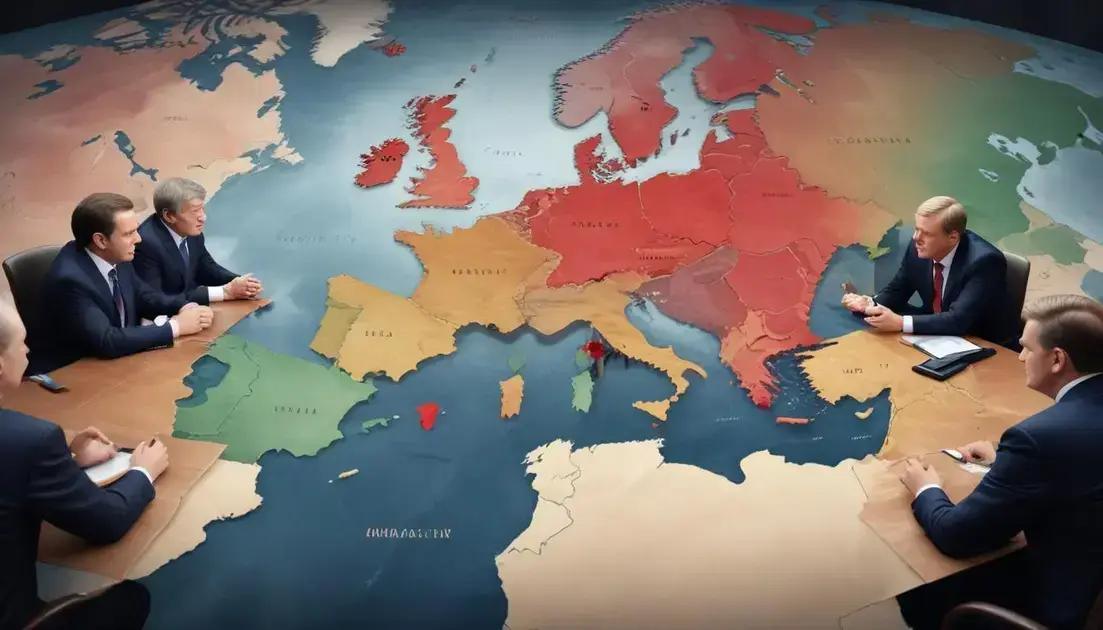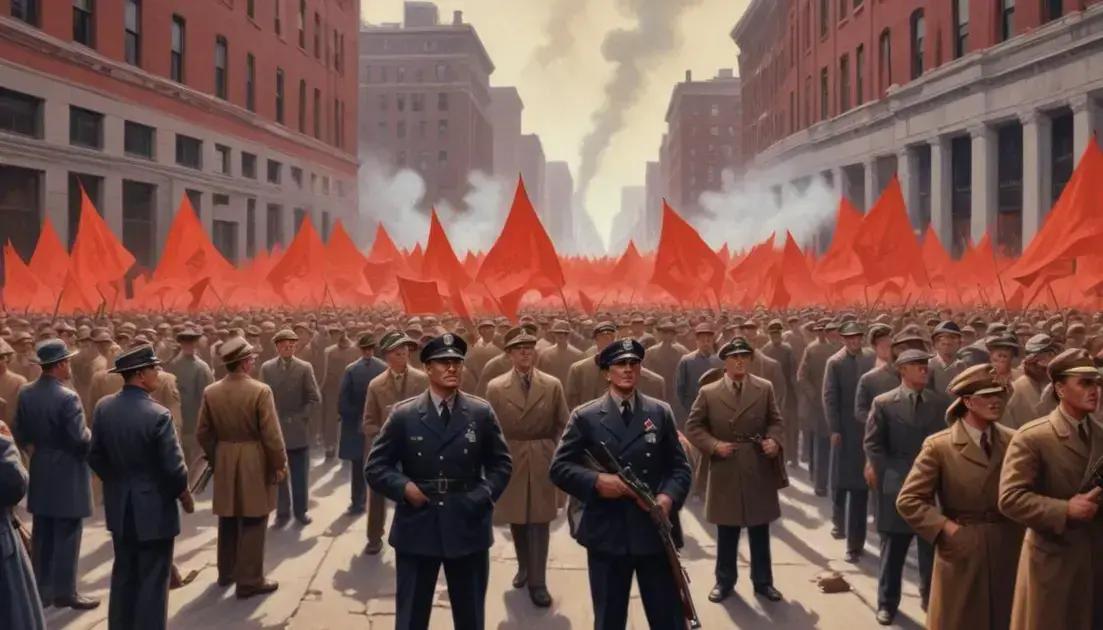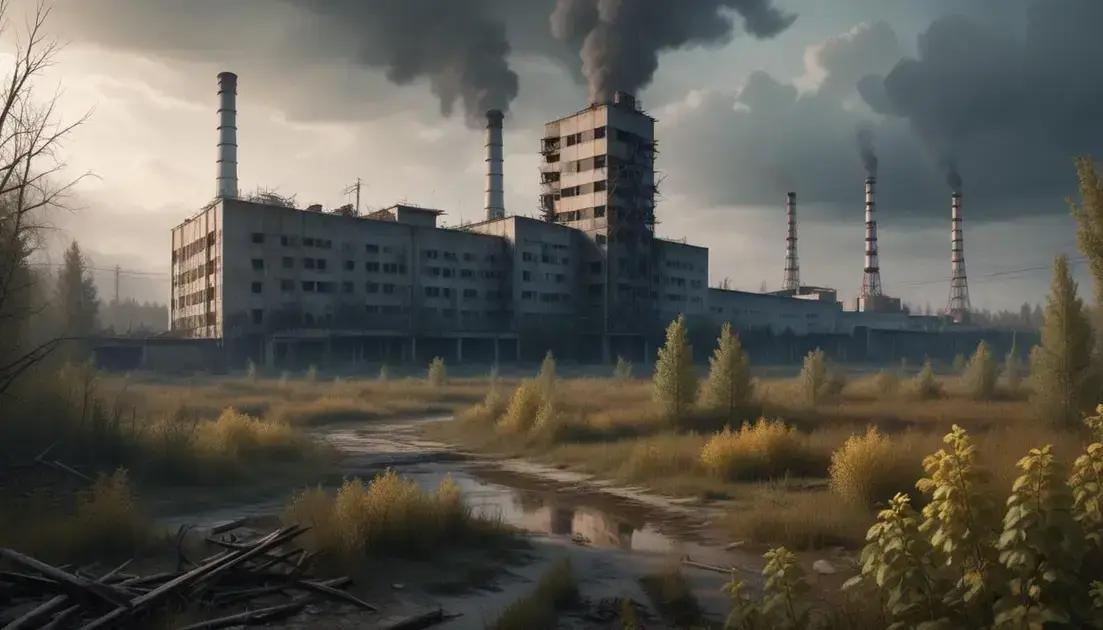
Ukraine: the return of bloc geopolitics
The ongoing Ukraine conflict profoundly impacts global alliances, driving nations to form new military and economic partnerships. Western countries are providing military support and imposing sanctions on Russia, while nations like China strengthen ties with Russia. This changing landscape raises concerns about security and diplomacy, highlighting the need for effective communication to prevent conflicts. The shift towards bloc geopolitics may result in a divided world, with increased military alliances and potential economic realignments, ultimately influencing trade and daily life for people everywhere.
The ongoing conflict in Ukraine has reignited tensions reminiscent of the Cold War, raising questions about global alliances and the future of international relations.
Introduction to the current geopolitical climate
The current geopolitical climate is shaped by many factors. Countries are increasingly divided into opposing groups, each with its own interests. This division is often described as a return to the tension of the Cold War. People around the world are concerned about where this might lead us.
Understanding Bloc Politics
Bloc politics refers to how countries align with others that share similar goals. These alliances can create strong networks, but they can also lead to conflicts. It’s essential to pay attention to how these blocs are forming today.
The Impact of the Ukraine Conflict
The Ukraine conflict is a key part of this geopolitical landscape. It has transformed relationships among powerful nations. Countries are choosing sides, which can have serious global implications. Understanding these dynamics is vital for grasping current events.
Global Reactions
Different nations are responding in various ways to these tensions. Some are taking a more aggressive stance, while others seek diplomacy and peaceful resolutions. This creates a complex web of interactions that affect trade, security, and international cooperation.
As the world watches, it’s crucial to stay informed. Watching how alliances shift and how countries behave can reveal much about future relations. Keeping an eye on these developments can help people understand the bigger picture in our world today.
Historical context of the Cold War
The Cold War was a period of tension between the United States and the Soviet Union. It lasted from about 1947 to 1991. During this time, the world was divided into two main blocs. Each side had different values and goals. The U.S. promoted capitalism, while the USSR focused on communism.
The Origins of the Cold War
After World War II, leaders struggled to rebuild their nations. Trust was low, and competition increased. This led to the formation of military alliances like NATO and the Warsaw Pact. These groups solidified divisions between East and West.
Key Events
Several critical events defined the Cold War. The Berlin Blockade in 1948 was a major crisis. The U.S. responded with an airlift to supply West Berlin. The Cuban Missile Crisis in 1962 brought the two superpowers to the brink of nuclear war.
Impact on Global Politics
The Cold War influenced many countries around the world. Nations aligned with either the U.S. or the USSR. This led to proxy wars, where conflicts happened indirectly. Places like Korea, Vietnam, and Afghanistan experienced the direct impact of this global struggle.
As the years went by, the Cold War brought about changes in technology and military power. It also shaped public opinion and culture. Movies, books, and art reflected the fears and hopes of the time.
Impact of the Ukraine conflict on global alliances
The Ukraine conflict has reshaped many global alliances in recent years. Countries have started to choose sides based on their interests and values. This shift has created new partnerships while straining old ones.
Western Response
Western nations, led by the United States, have rallied in support of Ukraine. They provide military aid and economic sanctions against Russia. These actions aim to weaken Russia’s influence.
New Alliances Forming
On the other hand, the conflict has pushed Russia closer to countries like China. Their cooperation strengthens as they face Western opposition. This new partnership raises concerns about balance and power in global politics.
Effects on NATO
NATO has become more united because of the Ukraine conflict. Member countries are increasing their military readiness. This unity can deter aggressors but may also escalate tensions further.
Global Trade and Economy
The conflict has disrupted global trade networks, impacting energy supplies and food resources. Countries are rethinking their reliance on imports from nations involved in the conflict. This has led to rising prices and economic uncertainty worldwide.
As alliances continue to shift, it is essential for nations to reassess their foreign policies. Keeping an eye on changes in global alliances is crucial for understanding future international relations.
Analysis of leading international responses
Countries around the world are responding to the Ukraine conflict in various ways. Each nation has its own strategy based on interests and alliances. Understanding these responses reveals much about global politics today.
Military Support
Many Western countries have provided military support to Ukraine. This includes weapons, training, and intelligence. The aim is to help Ukraine defend itself against aggression.
Economic Sanctions
Countries like the United States and those in the EU have imposed economic sanctions on Russia. These sanctions target key sectors like finance, energy, and trade. They aim to weaken Russia’s economy and limit its capabilities.
Diplomatic Efforts
Diplomatic efforts continue as nations seek peaceful resolutions. International organizations, like the United Nations, encourage dialogue between conflicting parties. This effort aims to avoid further escalation and promote stability.
Regional Reactions
Neighboring countries are particularly affected by the conflict. Nations close to Ukraine are increasing security measures and preparing for possible refugee flows. Their responses reflect immediate security concerns and humanitarian needs.
The diverse responses highlight the complexity of international relations today. Each nation’s choice impacts global peace and security. Monitoring these actions provides insights into future alliances and conflicts.
Future implications of bloc geopolitics
The future of bloc geopolitics looks complex as tensions continue to rise. Countries will likely strengthen their alliances to protect their interests. This could lead to a more divided world, much like the Cold War.
Increased Military Alliances
As nations choose sides, military alliances may become even more critical. Countries could increase defense spending and participate in joint exercises. This focus on military strength can create a more secure environment but also raises risks for conflict.
Economic Realignments
The current geopolitical landscape may lead to new economic partnerships. Nations may trade more with those who share their political views. This can impact global markets and supply chains, as countries seek stability in uncertain times.
Diplomatic Challenges
With rising tensions, diplomacy becomes more challenging. Countries might find it harder to negotiate peaceful solutions. Avoiding miscommunication is vital, as small misunderstandings can escalate into bigger conflicts.
Global Impact of Politics
As geopolitics shift, everyday people may feel the effects too. Changes in alliances can affect trade, travel, and even energy prices. Staying informed about these changes is important for understanding their impact on our lives.
Overall, the future of bloc geopolitics is uncertain. Close monitoring of international dynamics is essential for anticipating changes and preparing for challenges ahead.
Conclusion
In conclusion, the shifting landscape of geopolitics, especially in light of the Ukraine conflict, has significant implications for global alliances. As nations realign, we see stronger military partnerships and new economic ties forming. These changes can create both challenges and opportunities.
With countries choosing sides, the need for effective diplomacy becomes even more crucial. Understanding these dynamics helps us grasp how they impact trade, security, and daily life. As we look ahead, staying informed about these developments is vital to navigate the complexities of international relations.
Ultimately, the future of bloc geopolitics will influence many aspects of our world. By keeping an eye on these trends, we can better prepare for what lies ahead and work towards a more stable global environment.


